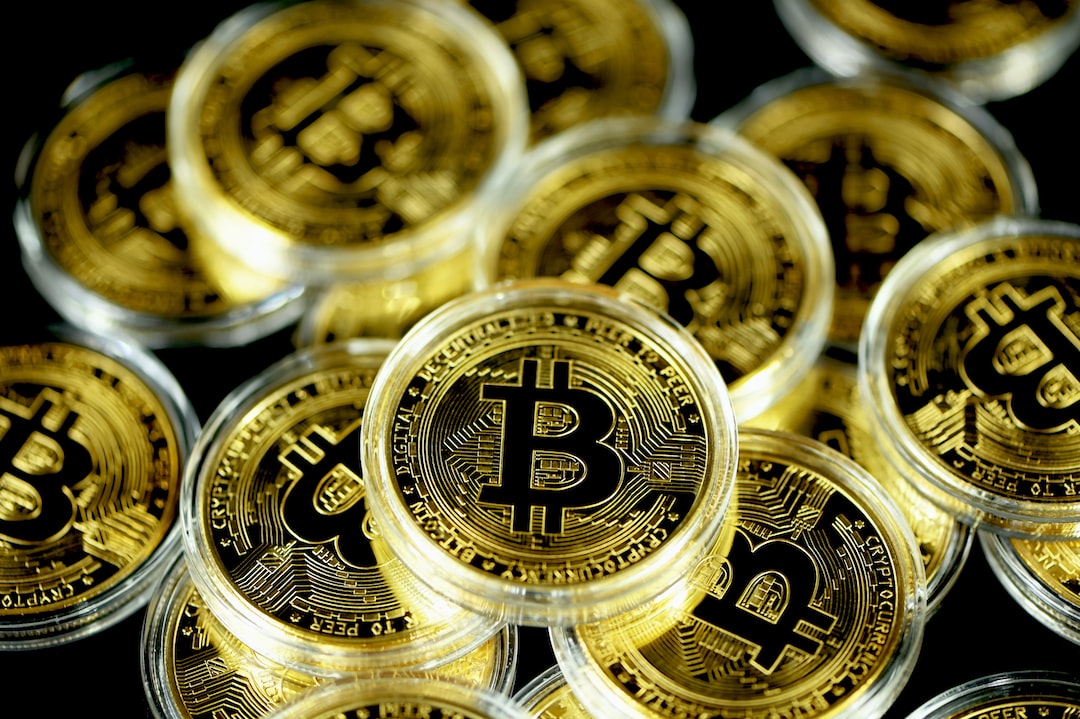The Importance of Regulation in the Crypto Ecosystem: Balancing Innovation and Security
Welcome to the exciting and ever-evolving world of cryptocurrencies! As an investor or enthusiast, you’ve likely come across terms like Bitcoin, Ethereum, and blockchain. These digital assets have garnered significant attention and have the potential to revolutionize various industries, from finance to healthcare and beyond. However, along with the endless possibilities offered by cryptocurrencies, there are also inherent risks associated with this unregulated market.
So, why is regulation important in the crypto ecosystem?
1. Protecting Investors
Regulation helps protect you, the investor, from scams, frauds, and other unscrupulous activities. In an unregulated environment, it’s easy for bad actors to take advantage of unsuspecting individuals. By establishing guidelines and enforcing them, regulatory bodies ensure that companies and individuals operating in the crypto space adhere to ethical standards, increasing accountability and reducing the likelihood of fraudulent activities.
2. Safeguarding Financial Stability
Without proper regulation, the crypto market can become volatile and unstable, posing significant risks to global financial systems. By implementing regulations, policymakers can mitigate potential threats, such as money laundering, terrorist financing, or market manipulation. Regulation can also enhance transparency by mandating reporting requirements and standardized practices, which ultimately contributes to the overall stability of the crypto ecosystem.
3. Fostering Innovation
Contrary to popular belief, regulation can actually fuel innovation within the crypto industry. While some fear that regulations may stifle creativity and slow down progress, a clear and well-defined regulatory framework provides a level of certainty that both entrepreneurs and investors need to operate confidently. Proper regulation can attract institutional investors and encourage traditional financial institutions to enter the market, unlocking substantial resources and expertise that can drive further innovation and growth.
4. Ensuring Consumer Protection
Regulation plays a vital role in safeguarding the interests of consumers and users of cryptocurrency platforms. It establishes standards for data protection, privacy, and security, preventing theft and unauthorized access to personal information. Additionally, regulations can enforce measures to combat cyber attacks and encourage exchanges and wallets to implement robust security measures, protecting your funds from potential theft or loss.
5. Building Trust and Credibility
In an industry often associated with illicit activities and scams, building trust and credibility is crucial for widespread adoption. Regulatory oversight helps establish confidence and legitimacy in the crypto ecosystem. By adhering to regulatory guidelines, businesses gain credibility, attracting both users and investors. Moreover, regulation can provide a more level playing field, reducing the risk of market manipulation or unfair practices, which further solidifies trust.
FAQs
Q: Does regulation mean loss of privacy?
No, regulation does not necessarily equate to a loss of privacy. While regulations may require some level of transparency, they are primarily focused on protecting your privacy and personal information from unauthorized access or misuse. Regulations pertaining to data protection ensure that your personal data is handled securely.
Q: Won’t excessive regulation stifle innovation?
While excessive regulation can potentially stifle innovation, a balanced and well-thought-out regulatory framework can support and foster innovation in the crypto ecosystem. Regulations provide a level of certainty and reduce legal uncertainties, attracting traditional financial institutions and larger investors. This influx of resources and expertise can contribute to the development of innovative solutions and the growth of the industry as a whole.
Q: Can’t the crypto ecosystem self-regulate?
While industry self-regulation is possible, it may not be sufficient to address all the challenges and risks associated with cryptocurrencies. Self-regulation lacks the legal authority and enforcement capabilities that government bodies possess. Collaborative efforts between industry participants and regulatory bodies can create an effective regulatory framework that balances innovation and security while addressing the unique characteristics and challenges of the crypto ecosystem.
In conclusion, regulation plays a pivotal role in establishing a secure and thriving crypto ecosystem. It protects investors, safeguards financial stability, fosters innovation, ensures consumer protection, and builds trust and credibility. Regulation strikes a delicate balance between promoting innovation and mitigating risks, ultimately paving the way for the widespread adoption of cryptocurrencies and blockchain technology. So as you continue your exciting adventure in the crypto world, remember the importance of strong and effective regulation.





 By
By
 By
By
 By
By
 By
By
 By
By